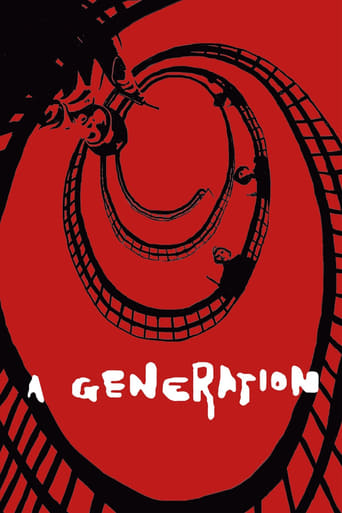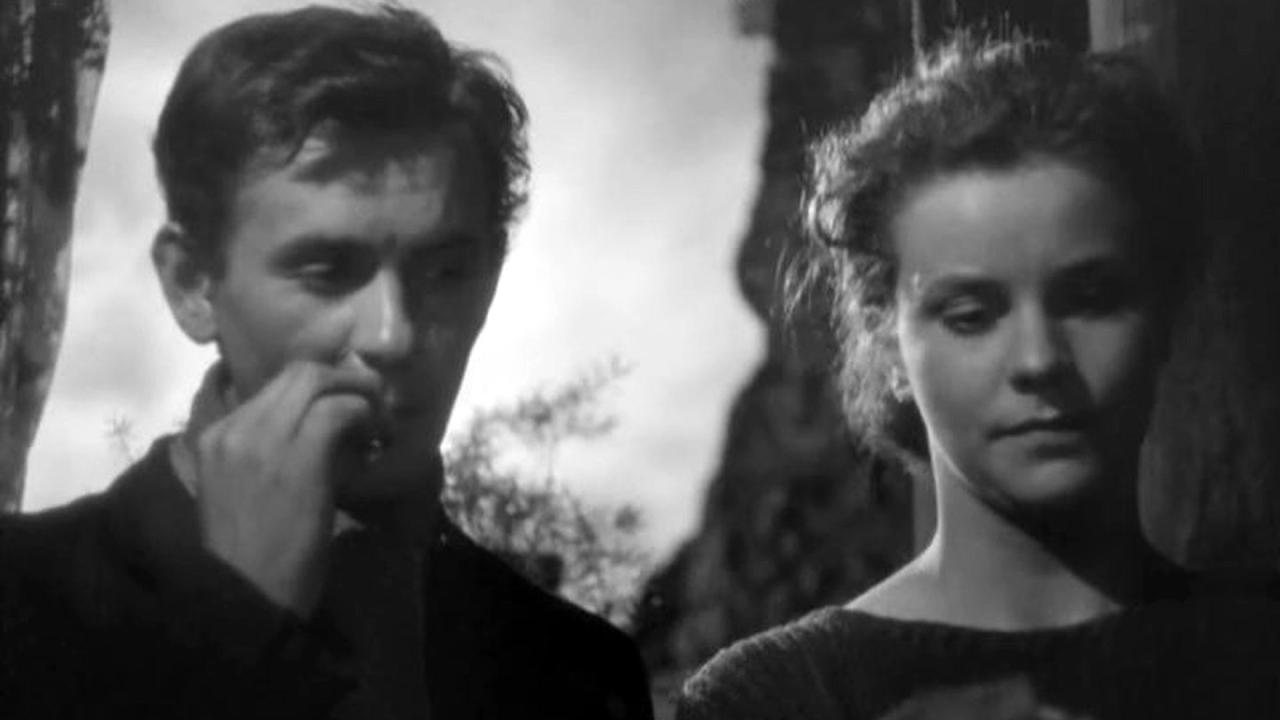jordans1877
Let me first say that I enjoyed the film. It's a little sloppy and the performances are inconsistent. But it looks great. And as far as debuts are concerned, this is definitely a solid effort. Not to mention it's kind of worth watching this film just to see a young Roman Polanski.What is so striking to me about this film is the irony of history: I believe that not only we (living in the 21st century) are able to understand this now, but that viewers of this film in 1955 Poland would have recognized as well. By 1955 Poland was stuck behind the Iron Curtain, held hostage by communist rule. Not unlike the Czechs (and their great communist satires), all art and media was mediated by the communist government. To see these young Poles attempt to improve their country by overthrowing the Nazi party with communism is ironic and ultimately tragic.Although this film may appear to some as communist propaganda, I see this film as a tongue-in-cheek allegory about the meaninglessness of war, and the complication of those attempting to end the war with another flawed ideology. Not a great film, but certainly interesting, especially when considering the historical context in which it was made.
writers_reign
Westerners like myself have at least two strikes on them when faced in 2010 with a film shot more or less half a century earlier under a regime which we in the West have never experienced. It begins very much in the vein of the Italian neo-realism school that began a decade earlier so that the first impressions are that Polish cinema was stuck in a stylistic rut but gradually it sheds that look and emerges as a movie in its own right. It is, of course, depicting events less than a decade old so presumably is authentic in that respect. For all I know there WERE groups of young Poles who became active in the Resistance at exactly the same time very much as the group here. For me it was difficult to become involved with the characters possibly because they were all and - with the exception of Roman Polanski who fails to distinguish himself here - and remain unknown to me, unlike say, the cast of L'Armee des Ombres. Nevertheless I will persevere with the other two - Kanal, Ashes and Diamonds - of the trilogy.
MartinHafer
This was director Andrzej Wajda's first full-length film--and because of that, this stands as an amazing achievement. On the Criterion disk is an interview with Wajda and he credits much of the film's success to the cameraman and I agree wholeheartedly that this is one of the best looking black and white films I have ever seen.The film concerns a young man during the Nazi occupation of Poland. In the beginning, he's a bit of a jerk but eventually gets a job and shows great responsibility. Later, he is welcomed into the partisans and it is an interesting look into this seldom talked about period of history.The film gets a score of 8. It would have had a higher score had the film been more honest--as it portrays the Communists as being THE resistance and those partisans wanting a return to the democratic system as being greedy bourgeoisie. However, on the Criterion DVD, Wajda talks about how this was one of the required changes the Soviet-dominated Polish government mandated before they'd allow his film to be shown. So, considering the sensibilities of the time, it's not surprising that a little misrepresentation occurs. Still, it's a near-great film and a wonderful addition to KANAL. Wajda's 3rd film, ASHES AND DIAMONDS, unfortunately is a big disappointment to me and is considered the third in this trilogy about life in Poland during WWII.There is one MINOR mistake in the film. At one point, the hero is hit in the head and is bleeding. Later in the same scene, there is no head wound!
allyjack
Hard not to view this film with the benefit of hindsight when - for example - the final image, of faces almost tangibly seeing the light of a new tomorrow, is apparently so straightforwardly propagandistic; scenes such as that in which the older workman talks reverently about the promise of Karl Marx now seem at best quaint. That's probably not an entirely fair prism through which to consider the film, but the theme of anti-Nazi resistance obviously becomes less stirring when one considers the limitations of what's being put forward as the alternative. Furthermore, although the movie's gritty, shadowy pace generally makes for entertaining viewing, there's a fairly consistent series of images which seem to push too hard - the heart-shaped photo slot at the fair through which we watch as she steps away from him; the Hitchcock-like fall through the well of the spiral staircase. The movie's pace and concentrated immersion in its time and place makes it engrossing, and the earnestness and deprivation are still touching, but it's surely no longer the viewing experience it once was.


 AD
AD




